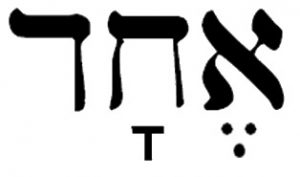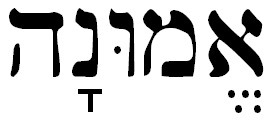by Lois Tverberg
But Zipporah took a flint knife, cut off her son’s foreskin and touched [Moses’] feet with it. “Surely you are a bridegroom of blood to me,” she said. So the LORD let him alone. (At that time she said “bridegroom of blood,” referring to circumcision.) – Exodus 4:25-26
One of the strangest stories in the Bible is when Moses and his wife and son return to Egypt after God told Moses to tell Pharaoh to let his people go. The original Hebrew text is difficult to interpret, and it is not clear whether Moses’ life or his son’s life was in danger, and who was touched with the blood. Commentators believe that this may have been part of a longer story handed down orally that the ancient audience was assumed to know.
A few keys can help us see the point of the story, though. Circumcision was the sign of the covenant that God had made with Abraham, the visible mark of the commitment between the people of Israel and God. God seems to require this sign before fulfilling covenantal promises. With Abraham, even though God appeared to him years before he was called to circumcise his family, it was only after he did so that Sarah became pregnant with Isaac, the promised son. Similarly, God had called Moses at the bush, but now before God can use him to fulfill his covenant, he must come under the covenant himself.
A new understanding of the word translated “bridegroom” also clarifies the passage. In Hebrew, the word hatan commonly means “bridegroom.” But in Akkadian and Arabic, two closely-related languages to Hebrew, the word means “protected” or “circumcised.” This passage may have been using a less common definition of hatan, so Zipporah would have said “You are protected by blood,” instead of “a bridegroom of blood.” (1)
The surrounding text also gives some insight. Immediately before this story are the words that God gave Moses for Pharaoh: “Israel is my firstborn son, and I told you, ‘Let my son go, so he may worship me.’ But you refused to let him go; so I will kill your firstborn son.” (Ex. 4:22-23) This is a prophecy of the coming of the plague of the death of the firstborn that will allow the Israelites to go free. The Israelites were protected from judgment by the blood of the lamb daubed on their doorposts. This story seems to be a foreshadowing of that event, showing that Moses’ own son was protected by blood as well. The word for “touched” is the same as that used for daubing the blood of the lambs on the doorposts, suggesting that this is the case.
All this points to the idea that in ancient ways of thinking, God was communicating that salvation from judgment only comes from being protected by blood. Through this strange story, we can see into the future, to the need for the shedding of the blood of Jesus as well.
(1) Sarna, N., The JPS Torah Commentary on Exodus, Jewish Publication Society, 1991, p. 26.





